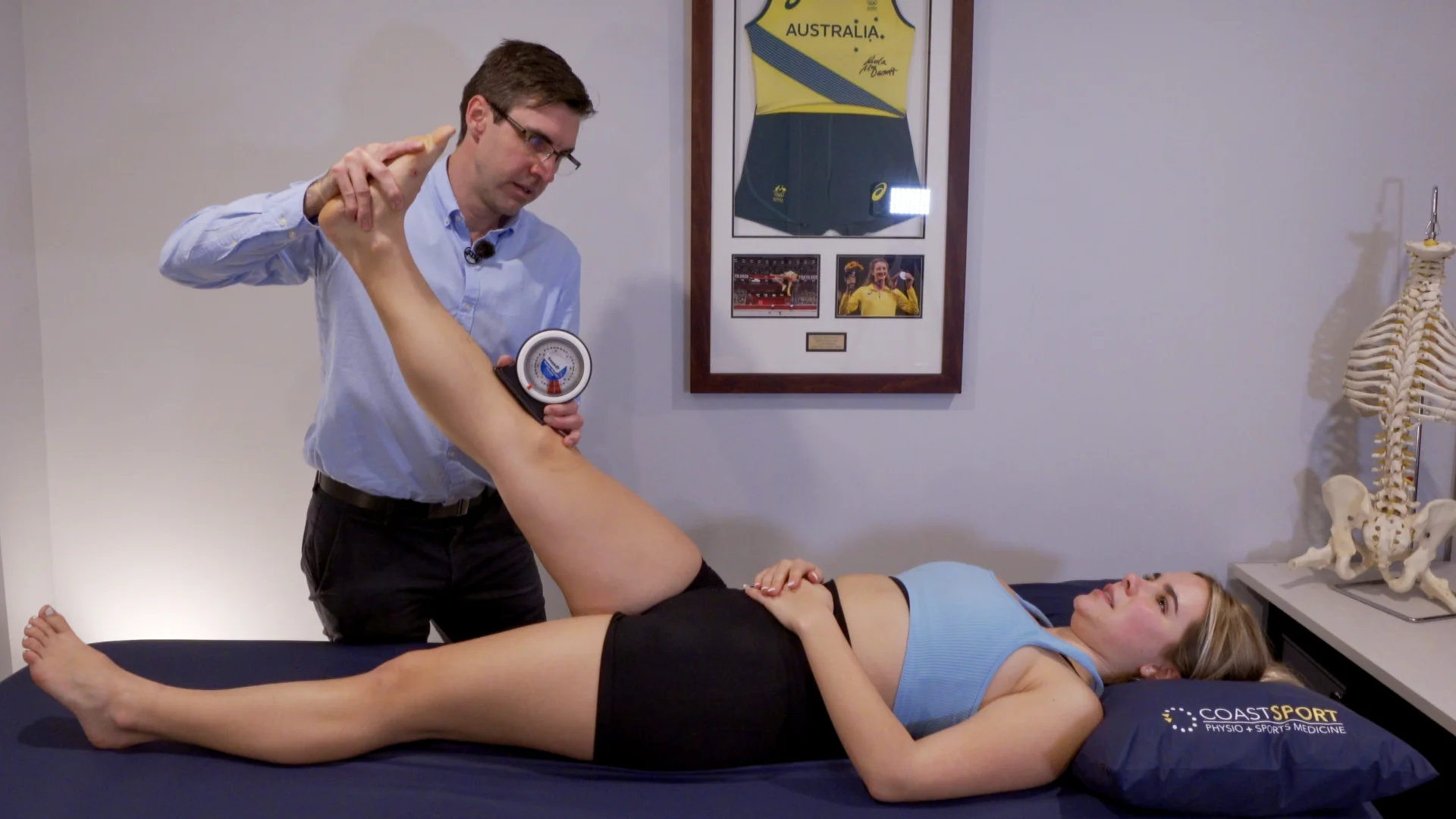When your patient describes any symptoms of pain, pins and needles or numbness below the buttock, a full assessment of lower limb power reflexes and sensation will be needed before you undertake any further assessment.
You may even need to consider upper motor neuron tests such as clonus, Babinski and Hoffman’s reflex.
If your patient doesn’t have any strong neuro features, and you would like to reassure yourself or the patient, a quick neuro screen may be just what’s needed.
Radicular pain or neuromechanosensitivity
What about when your patient has leg pain referred from their low back, without any associated neuro symptoms? What causes this, and how should you assess these patients?
Nerve roots can be sensitive from inflammation, ischaemia, compression and tension, without any disruption of the axon or associated conduction loss, or any altered reflexes, power or sensation.
These sensitive nerve roots can be a source of nociception, causing referred pain in the leg.
Neuromechanosensitivity or radicular pain are the terms used for sensitivity of a nerve root without conduction loss.
In this presentation with Simon Olivotto (Specialist Musculoskeletal Physiotherapist, FACP), you’ll discover:
-
How to quickly perform a lower limb neurological screen to reassure yourself or your patients that they do not have any nerve conduction loss.
-
How to perform a thorough lower limb neurological assessment of reflexes, power, and sensation which is essential in patients with neurological symptoms.
-
How to test the central nervous system (CNS) in patients with bilateral or non-dermatomal neurological symptoms, ataxia or non-specific motor changes.
-
How to identify sensitive nerve roots causing referred leg pain without neurological symptoms.
-
Quick assessment tests you can use to screen for neuromechanosensitivity in your low back pain patients.
-
Neuromechanosensitivity tests for the lumbar spine,
-
How to use neuromechanosensitivity tests to differentiate upper lumbar spine involvement from lower lumbar spine referred pain.
-
Commonly performed tests you need to avoid in patients with a radiculopathy.
CLICK HERE to improve your assessment & diagnostic skills with a free trial Clinical Edge membership

